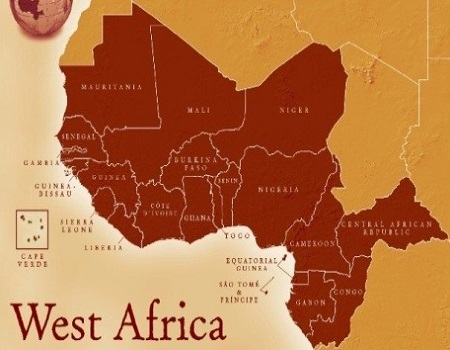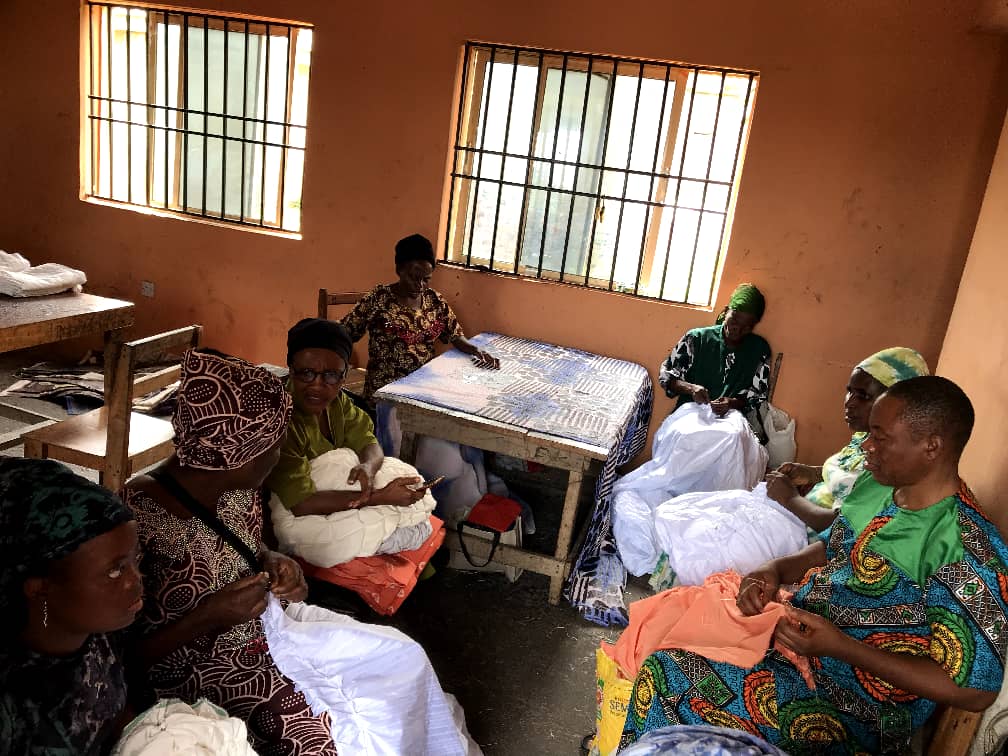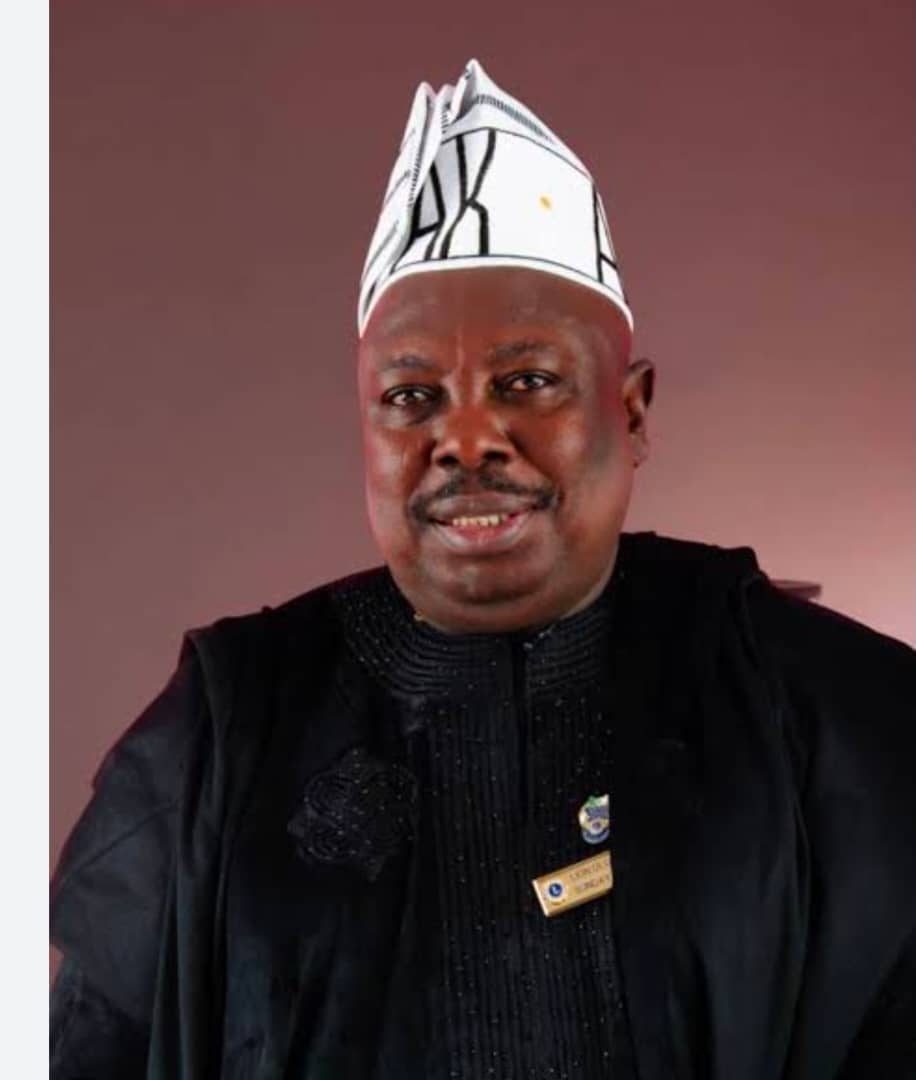40% of West Africa’s 450 million population should have social protection —OTUWA
[ad_1]
As the global COVID-19 pandemic revealed the vulnerability and weakness of the world healthcare system especially in Africa, causing economic meltdown across countries with terrifying inflation, skyrocketing unemployment rate and unleashing severe hardship to families, the provision of a wide social protection coverage as a productive counter measure to revive families from falling deeper into the abyss of poverty was the dominant discuss at the recent workshop of the Organisation of Trade Unions of West Africa (OTUWA).
Speaking with journalists at the side of the workshop in Abuja, the General Secretary of OTUWA, Comrade John Oda, said the goal was to ensure that 40 per cent of the 450 million people in the West African sub region should at least have social protection of one type or the other.
Giving insight to Africa’s case regarding social protection provision, Oda said, “In terms of coverage, Africa is at 17 per cent coverage of social protection which is the least in the entire world. And when you come to the various sub regions, West Africa is lagging behind with around 13 per cent.
“At the last meeting of the African region directorate of the International Labour Organisation, African governments, social partners, that is, workers and employers did agreed that we needed to work together to be able to push social protection coverage to a minimum of 40 per cent between 2025 and 2030 to be able to show anything meaningful about the UN SDG.
“So, that is what we are hoping that we will be able to work with social partners and the government to push up the funding on social protection from a miserable 1.2 per cent of GDP to a minimum of 10 per cent.
“There are nine branches of social protection: the old age pension, maternity protection, unemployment benefits and others. We have a young population in Nigeria and Africa at large and one of the negative characteristics is that we are not providing jobs for them. Why Europe is relatively steady, why the developed countries are relatively stable is because they provide unemployment benefits.
“In Nigeria and other countries in West Africa, we ought to be thinking about providing unemployment benefits so that individuals, even if they are not immediately engaged, can have a means of livelihood to sustain them. This is what this whole thing about social protection is trying to achieve.
“Therefore, the call is for governments to ensure that of the 450 million people in the West African sub region, at least 40 per cent of this population should have social protection of one type or the other.”
Earlier in his keynote remarks, President of OTUWA, Comrade Mademba Sock, said, “Our sub region lag behind other regions in the continent and the rest of the world in social security and social protection coverage for its people.”
“This workshop is therefore framed to address how as trade unions in our respective countries, we can join the advocacy for increased funding of social protection at our various national levels.
“Other aims of the workshop include the following: to interrogate perspectives for funding extended social protection to the citizens of West Africa; to campaign for raising public funding and expenditure on social protection to 10 per cent of national GDP in each country of ECOWAS; to develop advocacy and campaign strategy for extending aggregated social protection coverage to at least 40 per cent of the population of West Africa by 2030; to develop perspectives for the Trade Union Campaign for Universal Social Protection in West Africa.”
In her remarks, Danish Trade Union Development Agency (DTDA), International Adviser and Head of SRO-West Africa, Mrs Liliane Napoe, said, “To move forward towards better and universal social protection for informal and rural workers and their families, facilitating international cooperation and resources mobilisation, including South-South cooperation, as included in the informal economy improvement programme and the Social Protection for Informal and Rural Workers (SPIREWORK) adopted at the AU Assembly of Head of State and Government in 2012 and reiterated in the Ouagadougou Declaration, is very much what we want, what we are working for and are ready to work for more.
“DTDA has made social dialogue and social protection one of its priorities and has been working for years with various partners at the national, sub-regional and regional levels. We hope that our commitment at your side will continue and hopefully contribute to the expansion of social protection in line with the Africa we want in 2063 agenda.
“We at DTDA, together with our various partners, have understood that the extension of social protection also requires the formalisation of the informal economy in accordance with ILO recommendation 204.
“In line with this oriented conviction, DTDA has been committed for years to fund and work with its partners to work for the formalisation of the informal economy in different countries both on the African continent through its sub-regional offices and in West Africa through the Lomé office. A recent study has been funded and carried out in Ghana, Sierra Leone, and Benin on social protection and this clearly shows our commitment to the issue.”
ALSO READ FROM NIGERIAN TRIBUNE
Earlier in her presentation, ILO Country Director in Abuja, Ms Vanessa Phala, said, “Social Protection coverage gap in Africa are associated with significant underinvestment in social protection (excluding health) and two per cent on public health expenditure (compared to the global average of 12.9 and 5.8 per cent, respectively). While countries in Northern Africa spend on average 7.7 per cent of their GDP on social protection and 2.4 per cent on health, sub-Saharan Africa lags behind, with only 1.2 per cent GDP allocated to social protection and 1.8 per cent to health.
“We all must act fast to close this huge coverage gap. We are the hood of over 80 per cent of African not being covered by social protection. Filling these financing gaps in the region requires efforts to expand fiscal space, both by mobilising domestic resources through progressive taxation and increasing social security contribution, with solidarity as a key underlying principle.”
[ad_2]















Post Comment